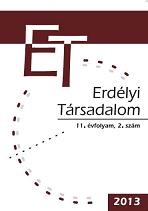Merre tovább, erdélyi kisparaszti gazdálkodás? Pillanatkép az EU-csatlakozás idejéből egy székelyföldi aprófalu – Siklód – példáján
The perspective of small-scale farming in Transylvania (a snapshot of Siklód, a small szekler village from the period of EU-accession)
Author(s): Melinda Nagyné Molnár Subject(s): Social Sciences
Published by: Presa Universitara Clujeana
Keywords: farming; small-scale farming; subsistence farming
Summary/Abstract: Smallscale peasant type farming has had varying importance in the course of time, but has always been part of rural economy. Following the change of regime in 1989-1990, the large scale farming structure founded during state socialism was dissolved throughout the Central and Eastern European region. These changes led to the revival of the family farms. After the collapse of the socialist agricultural farm structure, the smallscale family farms became the most widespread farm type. Nonetheless, the new agricultural structure still faces conflicts. One of the most serious problems is the lack of manpower and capital coupled with obsolete productiontechnologies. The extremely fragmented farms make farming inefficient. It seems that the traditional rural peasant society has been preserved, and only a few examples of ambition, project planning and risk taking ability can be spotted. In this paper I would like on the one hand to summarise the factors that determined the spread of smallscale landownership in Transylvania; on the other hand I would like to shed light upon the challenges posed by market economy based on a case study of a village (Siklód).
Journal: Erdélyi Társadalom
- Issue Year: 11/2013
- Issue No: 02
- Page Range: 111-120
- Page Count: 10
- Language: Hungarian

